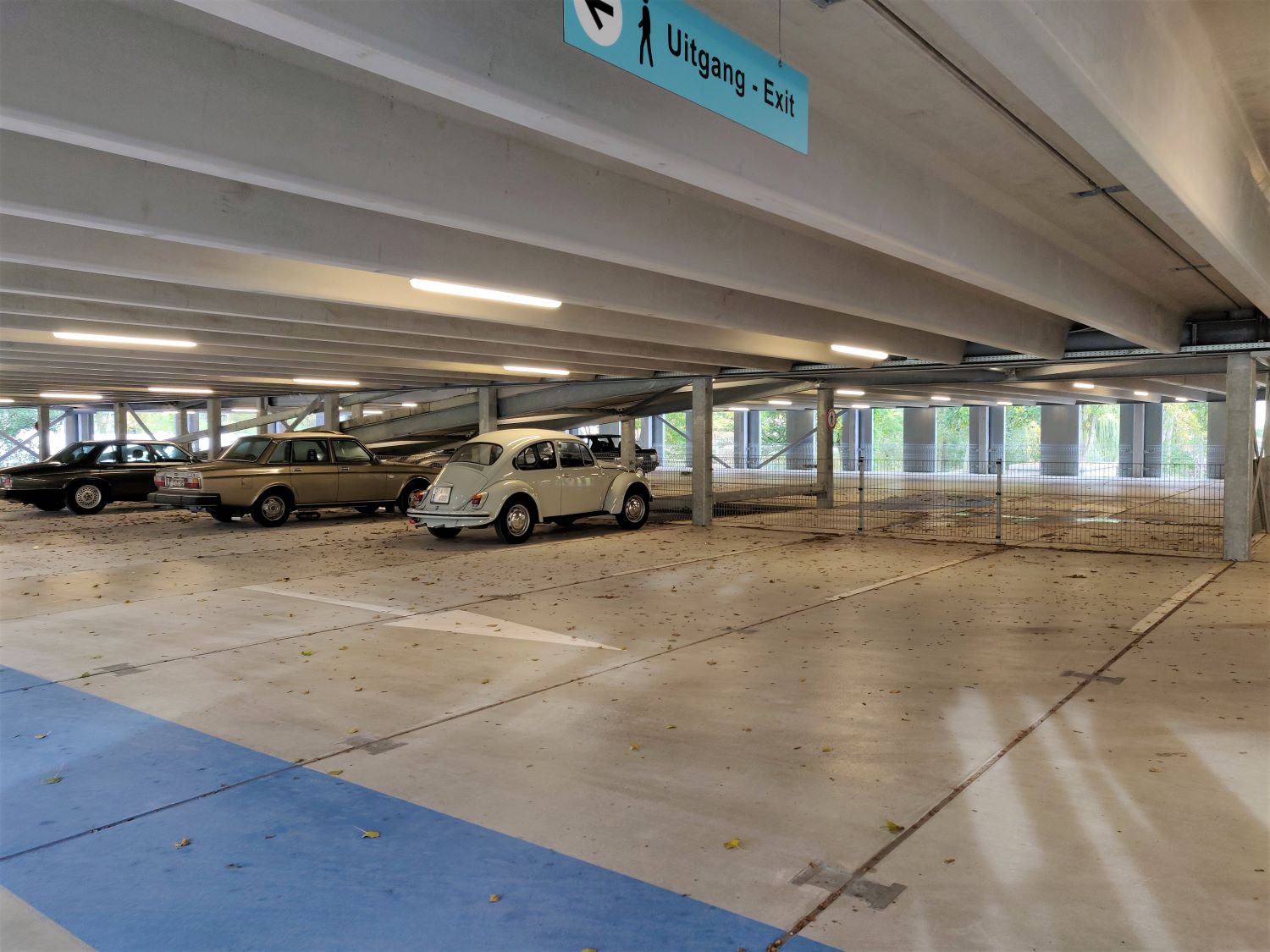This week, the Wippolder neighbourhood, adjacent to the campus, imposed paid parking. TU Delft is planning to regulate parking, though the timing is still up in the air.
Parking P-sports. (Photo: Marjolein van der Veldt)
As of Monday 1 February, parking in the Wippolder neighbourhood is no longer free. The Municipality of Delft is trying to reduce the parking pressure in the neighbourhood by introducing paid parking. In part because of the Municipality’s parking policy, TU Delft is also planning to regulate parking on campus. “If we do not do so, we run the risk that the entire city will come and park here,” says Director of Campus & Real Estate (CRE) Jaco van Noppen. CRE has been working on this for a long time, but he is unable to say when regulated parking will be introduced. “We are in discussion with the municipality as it is a hugely complicated issue. It involves far more than just placing a barrier.” Van Noppen says that TU Delft must take both the current traffic flows and future traffic flows into account. “Traffic to companies for example, or to other parts of Delft.”
Will staff have to pay for parking?
In answer to the question whether TU Delft staff will later have to delve into their own pockets to pay for parking – which may be one way to encourage the use of sustainable forms of transport – CRE gives non-committal answers. “We are still shaping the policy and no decisions have been taken,” stated a CRE spokesperson.
At the end of last year, Wippolder residents expressed rage in the ‘AD’ newspaper about the introduction of paid parking in their streets. At present, some residents in the area are already using parking places on campus, said Nicoly Vermeulen, former Executive Board member, at a Works Council meeting last October. In answer to a question posed by Works Council member Paul Roling about the progress of the new TU Delft parking policy, she said, “Unfortunately, there are several vans, campers and boats parked on our premises”.
Concerns about illicit parking
TU Delft staff are concerned that the changes in the Wippolder will attract a lot of ‘illicit parking’ and they wonder why TU Delft has not yet managed to introduce regulated parking. “In terms of timing, we are not always in sync with the Municipality,” says Van Noppen. “We will keep an eye on the parking pressure in the time to come and if it really gets out of hand, we will take interim measures.”
TU Delft’s parking policy is part of its wider vision on campus mobility and accessibility. The intention is that in the future, staff will not have to search for a place to park, but will be guided to a free space by dynamic parking signage. On their website, CRE explains that TU Delft wants to move towards ‘a few large parking areas on the fringes of the TU Delft campus instead of several fragmented parking places spread around campus.’ Examples of large parking areas are the multi-storey car park on the Rotterdamseweg, that is currently under construction, and the P Sports that was opened last year.
Do you have a question or comment about this article?
a.m.debruijn@tudelft.nl


Comments are closed.